Apostle paul personality type
What Would Paul’s Myers-Briggs Personality Type Have Been?
How would Saint Paul’s character have been reflected in the Myers-Briggs types? Was he an introvert or an extrovert? Did he focus on the information he learned or did he interpret it and add his own meaning to it? Was he purely logical, or did he include emotional factors in coming to a decision? Did he like to have things understood and decided, or did he keep himself open to new possibilities?
The Myers-Briggs type indicator is used for lots of different activities, from career counseling to suggesting particular forms of prayer. There are formal tests and even credentialing to administer the test available from the Myers-Briggs Foundation. Tests and counseling are available from many sources, approved and unapproved.
This is my own unscientific application of the principles of the type indicator to what I know of Paul from his writings and the writings about him in the New Testament.
The four letters of the type indicator represent preferred ways that individuals use their perception and judgment:
- Is there a focus on the outer world or on one’s own inner world, either extraversion (E) or introversion (I)?
- Is there a focus on the basic information one takes in or does one prefer to interpret and add meaning, either sensing (S) or intuition (N)?
- When making decisions, is there a preference for first looking at logic and consistency or first looking at the people and special circumstances, either thinking (T) or feeling (F)?
- In dealing with the outside world, is there a preference for getting things decided or to staying open to new information and options, either judging (J) or perceiving (P)?
I use the following reasoning to place Paul using each of the parameters of the type indicator:
- Like almost all people of his time, Paul would have been an extrovert.
The kind of knowledge of personality which led to understanding the interior world was unknown at his time. (E)
- All the information the Paul takes in is filtered through the perspective of his faith commitment, first during his early background as a Pharisee and later through his commitment to Christ. This is the way he interprets and adds meaning to his immediate sensations. (N)
- Paul’s decision making is based in scripture and in his understanding of the gospel, rather than in his emotional responses to events. (T)
- Paul acted out of his convictions, even as they were growing and evolving over time, rather than responding to his immediate perceptions. (J).
Based on these considerations, I would place Paul in the type ENTJ.
According to the introduction to personality types written by Isabel Briggs Myers, the attributes of the ENTJ include:
- Frankness, decisiveness, assuming leadership readily
- Quickly seeing illogical and inefficient procedures and policies
- Developing and implementing comprehensive systems to solve organizational problems
- Enjoying long-term planning and goal setting
- Usually well informed, well read, enjoying expanding knowledge and passing it on to others
- Forcefulness in presenting ideas
People with the ENTJ personality type make up less than 2% of the population. They are goal oriented and organized. They tend to focus on the most efficient ways to achieve their goals.
They are goal oriented and organized. They tend to focus on the most efficient ways to achieve their goals.
They tend to make good leaders. They are visionary in their ability to set direction and practical in their ways of accomplishing it. They are strong willed and independent in their decision making and resistant to external pressures. They tend to be logical and rational in their understanding of their environment, as well as competent and capable in the work they do.
Because of their logical thought processes, ENTJ’s have one significant blind spot—feelings. They have difficulty in understanding personal perspectives and emotional factors when evaluating situations and making decisions. Close personal relationships can be problematic for them since they may miss significant feelings in others.
Does this sound like Paul? His fierce independence and determination carried him across the Roman Empire, and the church organizations he founded survived and prospered.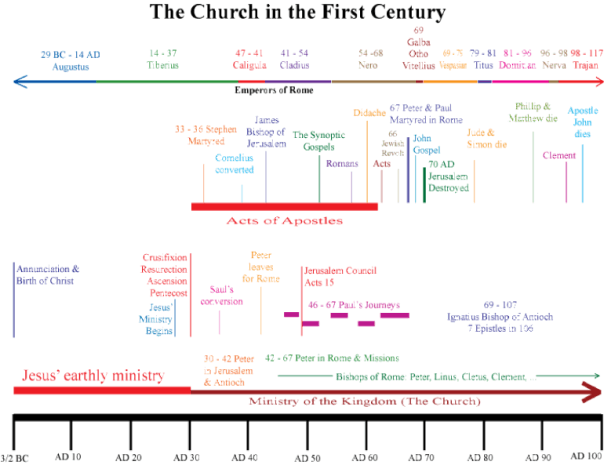
He, and perhaps his potential wife as well, were fortunate that he never married. His lack of family responsibilities protected him from the distraction and challenges of close relationships. This left him free to focus on the work he did so very well.
Download PDF
Paul: Portrait of an ENTJ
An ENTJ is someone who is:
- Extroverted: Gets energized by spending time around people.
- INtuituve: Focuses on ideas and concepts as opposed to facts and processes.
- Thinking: Makes decisions based on logic and strategic thinking.
- Judging: Prefers structure and order.
Of all the personality types, the ENTJ is most suited for leadership. When it comes to mobilizing and directing others, they’re naturals. Depending on their maturity and emotional health, they will lead with great skill and sensitivity, or they’ll lead like a dictator-but the chances are that people are going to rally around them.
ENTJs have a unique ability to see what needs to be done and create the structure required to accomplish it. They’re decisive and resolved. And when they’re challenged, they’re adept at proving that they’ve thought through all the potential problems.
Luke gives us a lot of information about Paul in the Book of Acts, but we also get a glimpse into his character from his many Epistles. Paul was a big personality and quickly became a vital force in the early church. And it’s his style of leadership that helped the church grow so fast.
Here are some reasons it’s safe to assume that Paul was an ENTJ.
1. Paul always inspired followers
The first time we see Paul, it’s in the seventh chapter of Acts. Luke calls him by his Hebrew name (Saul) and tells us that when the Sanhedrin stoned Stephen (the first Christian martyr), witnesses who got involved stripped off their outer garments and laid them at Paul’s feet (Acts 7:58). This not only tells us that Paul approved of this action (Acts 8:1), but it demonstrated that he was well known and respected.
Almost immediately, we see Paul going from house to house dragging off Christian converts and throwing them in prison. Luke tells us that Paul wasn’t doing this alone. He’s singled out because he’s going to have a life-changing interaction with the risen Jesus-but he’s also singled out because he’s leading this persecution.
Paul went to the high priest and requested that letters be sent to the synagogues in Damascus to alert them that he was coming to arrest any Christians in their communities. Paul meets Jesus on the road to Damascus, which tells us that even the high priest recognized Paul’s leadership and agreed with his strategy (Acts 9:1-4).
After Paul is converted, the disciples are nervous (Acts 9:26). Maybe this was all an elaborate trick to infiltrate the church. Almost immediately, Paul starts wandering around Jerusalem and telling others about Jesus, nearly getting himself killed by some Hellenistic Jews.
From this point on, the momentum of the New Testament shifts from Jesus’s disciples toward Paul. While he still respects the authority of Peter and the others, Paul begins to grow in influence and overshadows the others.
While he still respects the authority of Peter and the others, Paul begins to grow in influence and overshadows the others.
None of this is Paul’s intention. Instead, it’s a function of his personality and his calling. When an ENTJ sees a need or an opportunity, they jump. They immediately strategize a plan to solve a problem or capitalize on a specific opportunity-and people are drawn to their common-sense solutions and enthusiastic plans.
2. ENTJs aren’t overly sentimental
It’s interesting to look at how Paul views his past life. He was born to Jewish parents but was also a Roman citizen. He studied Jewish law under a well-known and much-respected rabbi. He was well on his way toward becoming a Pharisee of some renown. But when he meets Jesus, he abandons his past completely without any sentimentality.
ENTJs aren’t prone to fits of nostalgia or romanticizing the past. When new and better information comes, they quickly and easily abandon what no longer makes sense.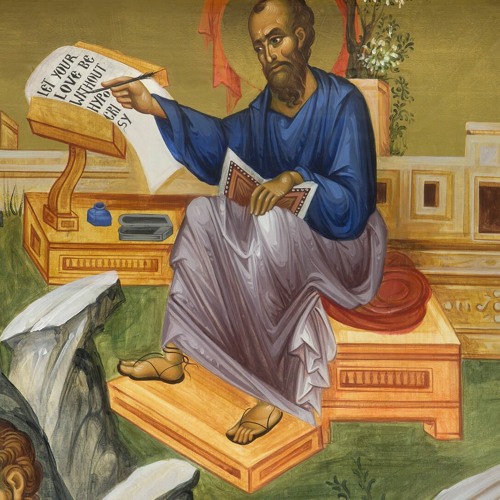 They’re always looking toward the future. When Paul writes to churches about turning from their old lives and embracing their new identities, it’s from the perspective of an ENTJ for whom the process is effortless.
They’re always looking toward the future. When Paul writes to churches about turning from their old lives and embracing their new identities, it’s from the perspective of an ENTJ for whom the process is effortless.
This helped Paul embrace his new identity so profoundly and communicate, “I consider everything a loss because of the surpassing worth of knowing Christ Jesus my Lord, for whose sake I have lost all things. I consider them garbage, that I may gain Christ …” (Philippians 3:8).
3. Paul wasn’t overly concerned that he was liked
When ENTJs are convinced they’re doing the right thing, the only thing that’s going to convince them otherwise is better information. Once they lock their eyes on an outcome, they’re like a dog with a bone. The last thing they’re concerned with is whether everyone supports or even likes them. In the end, they know they’ll be justified by what comes about.
We see this throughout Paul’s ministry. He wasn’t afraid to take risks that resulted in beatings and stonings.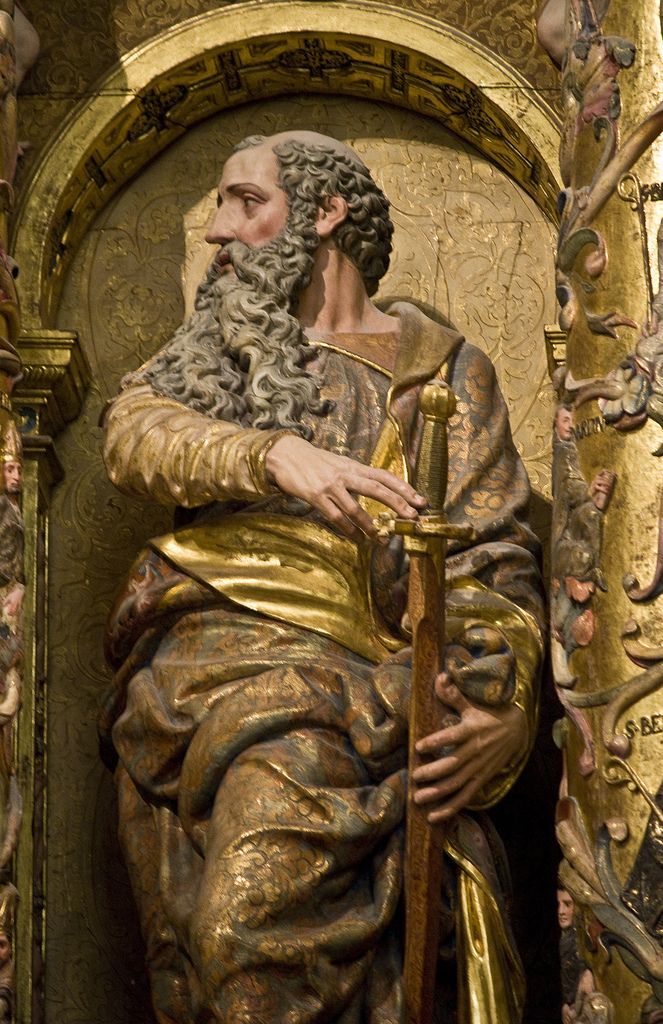 In his letters, he had no problem calling out individuals who were undermining the gospel (and therefore his mission), sometimes by name:
In his letters, he had no problem calling out individuals who were undermining the gospel (and therefore his mission), sometimes by name:
“I appeal to Euodia and I plead with Syntyche to be of the same mind in the Lord” (Philippians 4:2).
When Paul receives word that some doubt his apostleship, he insists to the church at Corinth that this simply isn’t justified. He assures them that he is not inferior to the more esteemed apostles and tells them that this has been proven with signs and wonders (2 Corinthians 12:11-12). Others might worry that this doesn’t appear very humble, but not Paul. His work depends upon his reputation, and he will defend it.
When others come into the church demanding that Christians observe Jewish law, especially circumcision, Paul lets them have it. He even goes as far as saying, “As for those agitators, I wish they would go the whole way and emasculate themselves” (Galatians 5:12)! This is the strong language of someone so secure in his mission that he doesn’t care who he upsets.
In many ways, the single-minded focus of the ENTJ is admirable-but it can also be a curse. Sometimes the ENTJ lacks the interest and sensitivity to work through intricate personnel problems, which means that they leave hurt feelings and angry people in their wake. And the time they were trying to save by being abrupt and forceful gets spent trying to smooth over ruffled feathers.
What’s your personality type?
If you’re interested in learning more about your personality type, check out “Become Like Jesus While Being Yourself,” a free discipleship guide for the 16 Myers-Briggs personality types.
It uses the 16 classic Myers-Briggs personality types to examine the unique ways each of us approaches faith. It identifies strengths and challenges faced by each personality as they seek to grow in their faith.
The Personality of the Holy Apostle Paul and the Special Features of His Gospel
The Council of Bishops of the Russian Orthodox Church, held in November 1994, called on the pastors and children of our Orthodox Church to enter the new field of missionary service, which is required in our days by the difficult situation in the Church, and in society. *
*
“Today the Church is reviving its full-blooded life in conditions of freedom,” says the Council’s rulings. brought to life such negative phenomena as the worldview confusion of people and the emergence of a spiritual vacuum, which is increasingly filled with pseudo-culture, propaganda of violence, vice, enmity, crime, immorality. It is especially disturbing that non-Orthodox and non-Christian preachers acting uncontrollably in our countries, tearing away from the Mother Church the souls of people who were baptized in it or have historical and cultural roots connected with it, take advantage of the lack of a spiritual guide for our compatriots.
All this can and must be counteracted by the vigorous activity and preaching of the pastors of the Church of Christ, a sermon that would not be only “persuasive words of human wisdom”, but at the same time would be filled with “the manifestation of the spirit and power.” It is very important that our Orthodox faith be established “not on the wisdom of man, but on the power of God” (1 Cor. 2:4-5). This is how the holy Apostle Paul teaches us, urging us “to preach the gospel, not in the wisdom of words, lest the cross of Christ be made void” (1 Cor. 1:17).
2:4-5). This is how the holy Apostle Paul teaches us, urging us “to preach the gospel, not in the wisdom of words, lest the cross of Christ be made void” (1 Cor. 1:17).
Therefore, the bitter truth of our life, expressed by the Council of Bishops, prompts us without delay to look for ways in which we can acquire that spirit and that strength that the Apostle Paul teaches us at the dawn of Christianity and about which in the 19th century in simple words and examples says St. Seraphim of Sarov in his conversation with Motovilov about the acquisition of the Holy Spirit. It seems to me that the personality of the holy Apostle Paul, his gospel, the way he served the Churches with care and daily bread (here I mean the money collections organized by him in support of the Jerusalem Church), and that everything in them was “decent and according to his order” (1 Cor. 14:40), is for us a living example of selfless service to the Holy Church. This example should inspire all of us to the cause of standing in faith and piety, to the cause of witnessing the exploits of our holy ancestors, to inspire us to fight for the purity of life in the Church and society and to many good deeds that are useful for our Fatherland today.
“Am I not an Apostle? Am I free? Have I not seen Jesus Christ our Lord? Are you not my business in the Lord? If for others I am not an Apostle, then for you I am an Apostle; for the seal of my apostolate is you in the Lord” (1 Cor. 9:1-2).
The Holy Apostle Paul, along with the Holy Apostle Peter, is called by the Holy Church the chief apostle. This name determines the exceptional place assigned to St. Paul by the Providence of God in the work of spreading Christ's teaching and establishing His Church on earth. It was about this calling of his that the Lord Ananias Himself, sent to Saul, who was blind from the appearance of the Resurrected Jesus on the road to Damascus, and was expecting healing and baptism, was told: “... he is My chosen vessel to proclaim My name before the nations and kings and sons Israeli; and I will show him how much he must suffer for my name” (Acts 9, 15-16).
And it was nothing else than the fulfillment of what Jesus Christ had previously predicted to His disciples: “… You will receive power when the Holy Spirit comes upon you; and you will be my witnesses in Jerusalem, and in all Judea and Samaria, and to the ends of the earth” (Acts 1:8).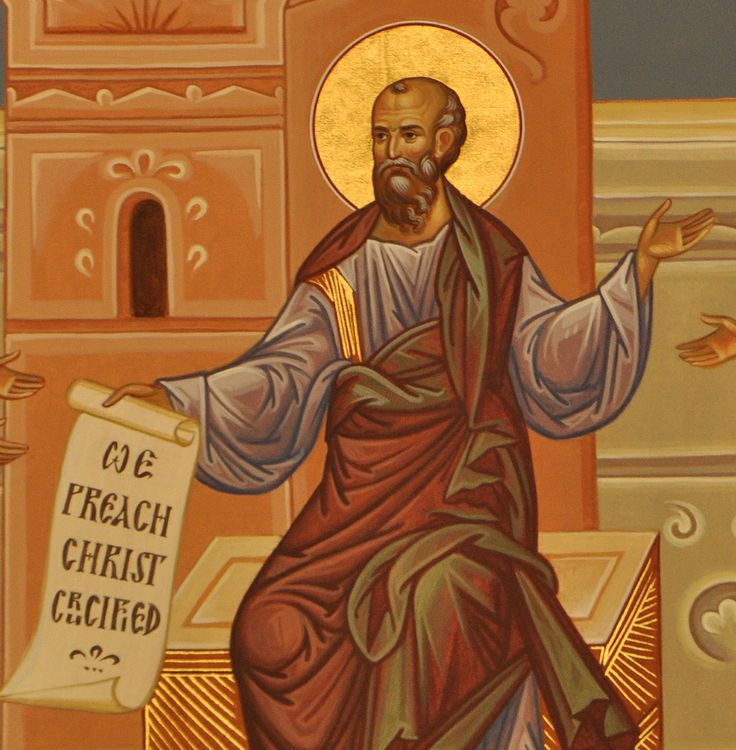
And now, at the end of the second millennium after the Nativity of Christ, the name of the holy Apostle Paul and the work of his gospel remains a sign for the missionary labors and deeds of modern Christian preachers, the essence of which is all the same testimony of the Risen Christ "even to the ends of the earth" (Acts 1 , eight).
The Holy Fathers of the past and many theologians of recent times maintained and still maintain that only by the will and strength of the spirit of the Apostle Paul did Christianity enter the expanses of the then pagan world. Therefore, the Holy Church from ancient times, in the days of the memory of the apostles, proclaims: “To all the earth their voice has gone, and to the ends of the world their words” (Prokeimenon, tone 8). And it was the Apostle Paul who primarily developed both that spirit and that power that were laid down in the Gospel of our Lord Jesus Christ, and went preaching about Him from Jerusalem to the borders of the Roman Empire with Spain (Rom.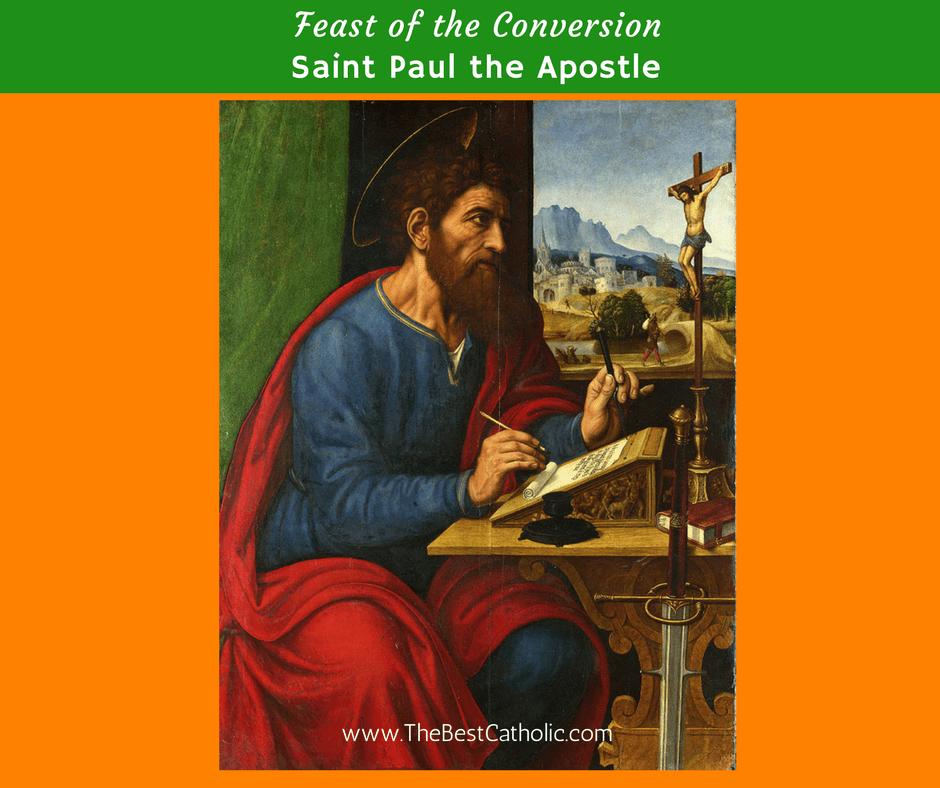 15, 19, 24).
15, 19, 24).
Let us pay attention to the circumstance that in the course of all this great work of evangelism—his four missionary journeys—Apostle Paul was constantly met with distrust of himself because of his past life in Judaism (which we will learn from the Apostle himself a little later). Every time after his departure from one or another city where he formed Christian communities, ill-wishers from among Jews and pagans began to express doubts about his apostolic authority and sowed confusion. Therefore, in all his epistles he had to emphasize, if not prove, the origin of his apostolate and gospel from Jesus Christ. For example: “Paul, a servant of Jesus Christ, called an Apostle, chosen to the gospel of God ... in Jesus Christ our Lord, through whom we received grace and apostleship, so that in His name we could subject all peoples to the faith ...” (Rom. 1, 1, 4- 5). And again: “Paul, by the will of God an Apostle of Jesus Christ, to the saints who are in Ephesus…” (Eph. 1:1). And so on, in each of his messages, we will meet similar statements. And in this regard, the fact of Saul's conversion to Christ Jesus on the road to Damascus occupies a very special place and significance. The Apostle constantly returns to this event in his life when he needs to defend the divinely revealed origin of his gospel and apostleship. Therefore, our reflections mainly refer to this extraordinary event in the life of the holy Apostle Paul.
1:1). And so on, in each of his messages, we will meet similar statements. And in this regard, the fact of Saul's conversion to Christ Jesus on the road to Damascus occupies a very special place and significance. The Apostle constantly returns to this event in his life when he needs to defend the divinely revealed origin of his gospel and apostleship. Therefore, our reflections mainly refer to this extraordinary event in the life of the holy Apostle Paul.
“Am I not an Apostle?”
Yes, the apostle Paul was not an evangelist, he was not a witness of Jesus Christ. We know only four evangelists—Matthew, Mark, Luke, and John—who knew their Divine Teacher and who, like all the Twelve, could say with the Apostle John: with the eyes that we have seen, and that our hands have touched, about the Word of life ... we proclaim to you ”(1 Jn. 1, 1-2). In other words: what the evangelists were witnesses to, they wrote down in their gospels. And those natural differences in presentation and numerous shades of their narrations are a consequence of the nature of the personality of each Evangelist and are nothing else than confirmation of the authenticity and truth of the holy gospels from Matthew, from Mark, from Luke and from John, in which, in essence and above all, to people the thought of God about the salvation of the human race from sin and for eternal life.
There is a huge apologetic literature on this subject, which convinces modern scholars to abandon the mythological theory regarding the historical truth about our Lord Jesus Christ and all kinds of false hypotheses regarding the origin and authenticity of the four Gospels.
So we can be sure that we have the gospel in our hands as it was given by God and as man could understand and accept it.
So, the holy Apostle Paul is not a self-seeing evangelist; he did not see or know the Lord Jesus Christ in the days of His earthly life. On the contrary, he persecuted His followers with the full conviction of his legal rightness (see Acts 22, 19-twenty; 26:10-11).
About himself he says this: “... I am a Jew, a Tarsian, a citizen of the notorious Cilician city” (Acts 21, 39), “circumcised on the eighth day, from the tribe of Israel, the tribe of Benjamin” (Phil. 3, 5), “… brought up in this city (Jerusalem - M.F.) at the feet of Gamaliel, carefully instructed in the law of the fathers .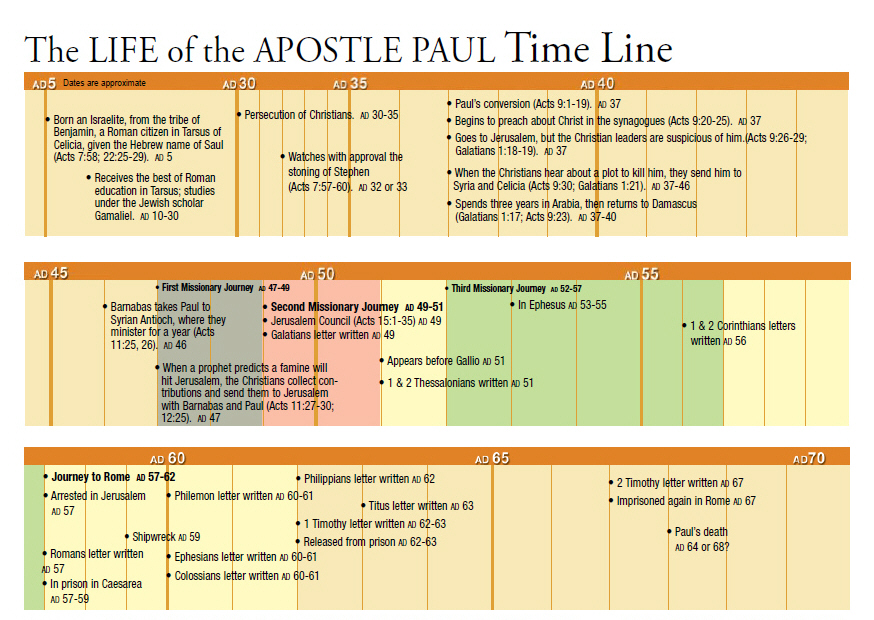 .. ”(Acts 22, 3),“ I lived as a Pharisee according to the strictest teaching in our religion ”(Acts 26, 5) “And he excelled in Judaism more than my peers in my generation, being an immoderate zealot of my fatherly traditions” (Gal. 1, 14), “... I thought that I should do much against the name of Jesus of Nazareth” (Acts 26, 9; cf.: Acts. 8, 3).
.. ”(Acts 22, 3),“ I lived as a Pharisee according to the strictest teaching in our religion ”(Acts 26, 5) “And he excelled in Judaism more than my peers in my generation, being an immoderate zealot of my fatherly traditions” (Gal. 1, 14), “... I thought that I should do much against the name of Jesus of Nazareth” (Acts 26, 9; cf.: Acts. 8, 3).
From this vivid picture of the holy apostle Paul's own sayings, one can imagine the mood and state of mind of the zealot of the "law" and "traditions" that seized him on the way to Damascus. Here, after the martyrdom of Archdeacon Stephen, stoned outside the walls of Jerusalem, “breathing with threats and murder against the disciples of the Lord” (Acts 9, 1), and “the young man Saul” rushed (Acts 7, 58), “so that whomever he finds next this doctrine, and bind both men and women, to bring them to Jerusalem” (Acts 9, 2).
But a different path was prepared by the Providence of God for Saul. And again let us hear him himself, as he describes what happened to him on the road to Damascus in his defensive speech before King Agrippa in Caesarea: . We all fell to the ground, and I heard a voice saying to me in Hebrew: Saul, Saul! why are you chasing me? It's hard for you to go against the pricks. I said, who are you, Lord? He said: I am Jesus whom you are persecuting. But get up and stand on your feet; for this is why I have appeared to you, to make you a servant and a witness of what you have seen and what I will reveal to you, delivering you from the people of the Jews and from the Gentiles, to whom I am now sending you, to open their eyes so that they turn from darkness to the light and from the power of Satan to God, and by faith in Me received the forgiveness of sins and the lot with the sanctified. Therefore, King Agrippa, I did not resist the heavenly vision ... ”(Acts 26, 13-19). Let us focus our attention on these words of the Apostle. They show us that Saul, although he is aware of his ability to “go against the pricks” (Acts 9:5), that is, to resist the calling Grace of God, he voluntarily accepts the call, does not resist the heavenly vision and freely asks Jesus: “Lord, what do you want me to do?" (Acts 9:6).
We all fell to the ground, and I heard a voice saying to me in Hebrew: Saul, Saul! why are you chasing me? It's hard for you to go against the pricks. I said, who are you, Lord? He said: I am Jesus whom you are persecuting. But get up and stand on your feet; for this is why I have appeared to you, to make you a servant and a witness of what you have seen and what I will reveal to you, delivering you from the people of the Jews and from the Gentiles, to whom I am now sending you, to open their eyes so that they turn from darkness to the light and from the power of Satan to God, and by faith in Me received the forgiveness of sins and the lot with the sanctified. Therefore, King Agrippa, I did not resist the heavenly vision ... ”(Acts 26, 13-19). Let us focus our attention on these words of the Apostle. They show us that Saul, although he is aware of his ability to “go against the pricks” (Acts 9:5), that is, to resist the calling Grace of God, he voluntarily accepts the call, does not resist the heavenly vision and freely asks Jesus: “Lord, what do you want me to do?" (Acts 9:6). So Saul was called by the Lord to become Paul, the apostle of the nations.
So Saul was called by the Lord to become Paul, the apostle of the nations.
"Have I not seen Jesus Christ our Lord?"
The fact of Saul's conversion to Christ in the New Testament critical literature also has many different explanations, attempts to present this conversion as a natural mental experience associated with his observation of the death of the first martyr Stephen, or as a result of hallucinations, or as a result of sunstroke during a difficult journey through the hot desert road. To all this the patristic interpretative tradition says: no and no!
On the road to Damascus, he was least of all prepared, both psychologically and mentally, to accept Christ persecuted by him. About the true mood with which Saul strove for his goal, he himself speaks - and each time he unequivocally testifies both before the Sanhedrin and before the Roman procurators that, "having received power from the high priests" (Acts 26, 10), "from whom and I took letters to the brethren living in Damascus, and went to bring them in chains to Jerusalem to be tortured” (Acts 22:5; cf. 9:2).
9:2).
Therefore, there can be no doubt that he was of sound mind, that the persecution of Christians in his Pharisaic understanding was a matter of his conscience; he neglected no means to that end. And only the supernatural appearance of the Risen One to him becomes the reason for his conversion, or rather, his rebirth. The appearance of Jesus Christ instantly convinced Saul that the Christ whom he considered dead was alive. Christ is truly risen. And He Himself goes to meet the persecutor, first addresses him, stops him, frightens him and calls for repentance and baptism with the words of Ananias sent to him: because you will be his witness before all people of what you have seen and heard. So what are you delaying? Arise, be baptized, and wash away your sins, calling on the name of the Lord Jesus” (Acts 22:14-16). Here is the starting point of the entire turning point in the life of the Apostle. From that moment on, death and resurrection, united inextricably, became the main truth of his faith and the theme of his gospel.
Let's talk about one more characteristic feature in this appeal of the Apostle, which also had a profound influence on his thought and life. Closely connected with the outward appearance of Christ is the inward sanctification of Saul. Christ was revealed in him: "God ... was pleased to reveal his Son in me" (Gal. 1, 15-16). At the moment when the Son of God appeared to him in His glory, the most complete, deepest revelation took place within him, which no external manifestation could destroy. From that day on, Christ became for the Apostle Paul the focus of his whole life. From fellowship with Him, Paul constantly drew strength of courage and thought, which became the content of his epistles and were tirelessly disseminated by him through missionary travels. Thus, in addition to the visible, speaking, preaching, reasoning, laboring man, another man appeared in the Apostle Paul, invisible - the man in Christ, whom Christ formed and in whom He lives: “And it is no longer I who live, but Christ lives in me. ” (Gal. 2:20).
” (Gal. 2:20).
It is incredibly difficult for us to imagine the state of mind of Saul, who was reborn in Christ by the Apostle Ananias. We can only become like the gospel Nicodemus, who, in response to Christ’s affirmation: “He who is not born again cannot see the Kingdom of God,” naively asked the Lord: “How can a person be born when he is old? Can he enter another time into his mother's womb and be born? (John 3:3-4). In response, he heard: “Do not be surprised at what I said to you: you must be born again. The Spirit breathes where it wants to, and you hear its voice, but you do not know where it comes from and where it goes: this is the case with everyone who is born of the Spirit” (John 3:7-8). That is how, unexpectedly for Saul, on the way, when he was full of thoughts about the persecution of the followers of Jesus of Nazareth, he was called and born again from the Spirit.
This amazingly miraculous appearance to Saul of Jesus Christ Himself left a heavenly seal on the whole future life of first Saul, and then the Apostle Paul, on the features of his character, on the content of his gospel, on the style of his 14 epistles that have come down to us.
“The seal of my apostolate is that you are in the Lord”
It is very important to remember that this appearance of the Lord to Saul, and then to Paul, was not the only one. Many more times he received reinforcement, encouragement and revelation from the Lord through an angel (Acts 27:23-26), just like the self-seeing apostles, when Jesus “opened their minds to understand the Scriptures” (Luke 24:45) .
Therefore, the thesis is true: Paul's gospel is a continuation, development and fulfillment of the same Gospel of our Lord Jesus Christ, which we received from the Seers, which passed through the heart and soul of the Apostle, which shines in him with all the facets of Divine Truth, the deviation from which his disciples caused bitter disappointment and pain in him and prompted him to write: “Oh, senseless Galatians! who deceived you not to obey the truth, you, before whose eyes Jesus Christ was predestined, as if crucified among you? (Gal. 3, 1). And to the same Galatians, a little higher, he writes significant lines with which he answers the questions he himself posed to the Corinthians and which we took as an epigraph to this modest opus:
“Paul, an Apostle, chosen not by men and not through man, but by Jesus Christ and God the Father, who raised Him from the dead… I proclaim to you, brethren, that the gospel that I preached is not human. For I also received it and learned it not from a man, but through the revelation of Jesus Christ” (Gal. 1, 1, 11-12). Similarly, the Apostle writes to the Corinthians themselves in the First Epistle to them:
For I also received it and learned it not from a man, but through the revelation of Jesus Christ” (Gal. 1, 1, 11-12). Similarly, the Apostle writes to the Corinthians themselves in the First Epistle to them:
“I remind you, brethren, of the gospel, which I preached to you, which you received, in which you were established, by which you are saved, if you hold back what was given as I preached to you. ... "(1 Cor. 15, 1-2). The epistle goes on to speak of Christ dying for our sins, according to the Scriptures; about His burial, about His resurrection on the third day, according to Scripture, about His appearances to the Apostle Peter, the Twelve, more than five hundred brothers, the Apostle James, all the Apostles (3-7). “And after all,” writes the Apostle, “he appeared to me as to some monster. For I am the least of the Apostles, and I am not worthy to be called an Apostle, because I persecuted the Church of God ... So, is it me, is it they, we preach this way, and you believe in this way ”(9, eleven).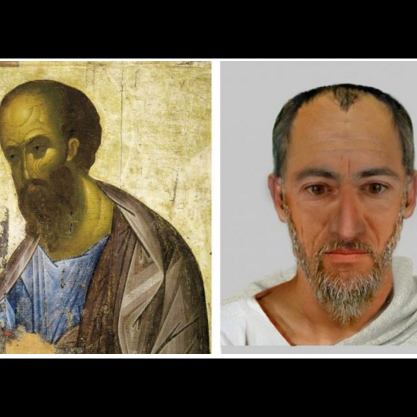
These words of the Apostle Paul, as well as such as “… we have the mind of Christ” (1 Cor. 2:16), convince us of the unity of the content of the Gospel of the Semanites and the Pauline Gospel, for there is only one source of revelation—our Lord Jesus Christ. Both the Twelve and Paul were equally vessels of Christ's mind, heart and strength, necessary for the organization of the Church of Christ, for overcoming various kinds of false teachings and divisions already in the first decades of its existence.
In this regard, his pastoral epistles are very characteristic and very modern, in which he writes to his disciple, Bishop Timothy of Ephesus: teach” (2 Tim. 1:13; 2:2). “Know that in the last days hard times will come, for people will be self-loving, lovers of money, proud ... disobedient to their parents ... impious ... cruel ... slanderers ... not loving goodness, traitors, impudent ... having a form of piety, but denying its power. Avoid such” (3, 1-5). These warning words of the Apostle, and especially such as “. .. There will be a time when they will not accept sound doctrine, but according to their whims they will choose for themselves teachers who would flatter their ears, and turn their ears away from the truth and turn to fables. But you be on your guard…” (2 Tim. 4, 3, 4, 5) should encourage us to study the teachings of the apostle Paul more carefully. They will help us today, as well as the apostle Timothy in his time, to keep everything commanded to us, “turning away from worthless idle talk and contradictions of falsely named knowledge, which, having given way, some have deviated from the faith” (1 Tim. 6, 20-21).
.. There will be a time when they will not accept sound doctrine, but according to their whims they will choose for themselves teachers who would flatter their ears, and turn their ears away from the truth and turn to fables. But you be on your guard…” (2 Tim. 4, 3, 4, 5) should encourage us to study the teachings of the apostle Paul more carefully. They will help us today, as well as the apostle Timothy in his time, to keep everything commanded to us, “turning away from worthless idle talk and contradictions of falsely named knowledge, which, having given way, some have deviated from the faith” (1 Tim. 6, 20-21).
Therefore, we should also draw a practical conclusion: let us equally revere the "Gospel" and the "Apostle"—our liturgical texts, divided into chapters and read daily at the Divine Liturgy. Let us equally responsibly proclaim in church the text of the Apostle and the Gospel, and with equal care let us deliver a sermon on the themes of the Gospel and the Apostle. This is exactly what we need to pay attention to both at the lectures of the seminary course “Homiletics” and at the practical exercises, which end with the pronunciation of our living word to the people coming to the temple.
All of our famous preachers have been brought up on Paul's word. It, which has passed through the test of life and suffering, always strikes with its simplicity and closeness to a person, it is real and universal. Why is the Apostle Paul a man of every time, every country, every people. We always feel that he is one of us. And this makes the study of the personality of the holy Apostle Paul, his life and his teachings the most important task for the modern theological school.
After all, we really cannot say with certainty that the spiritual heritage of the Apostle has been studied to the end. And although there is the great Chrysostom, a brilliant interpreter of many of Paul's epistles, there is our native interpreter of the holy Apostle Paul, the holy Bishop Theophan the Recluse, there is also a great learned man, Professor Nikolai Nikolaevich Glubokovsky, who left behind a huge legacy, among which is the capital work "The Gospel the holy apostle Paul according to his origin and essence. Biblical and theological research "(St. Petersburg, 1905, 1910 and 1912. By the way, the size of this book will frighten the reader: it contains 2,000 pages with a scientific apparatus of 3,000 titles of printed works), yet more and more new studies appear, the authors of which, figuratively speaking, follow "in the footsteps of Apostle Paul” (this is exactly one of the titles of modern writings about the Apostle).
Biblical and theological research "(St. Petersburg, 1905, 1910 and 1912. By the way, the size of this book will frighten the reader: it contains 2,000 pages with a scientific apparatus of 3,000 titles of printed works), yet more and more new studies appear, the authors of which, figuratively speaking, follow "in the footsteps of Apostle Paul” (this is exactly one of the titles of modern writings about the Apostle).
Therefore, I invite the students of our theological school to follow the spiritual footsteps of the Apostle, to be deeply imbued with his missionary spirit and deed to respond to the call of the Mother Church, entering the modern thorny field of preaching the Gospel Truth.
*A speech delivered at the Minsk Theological Seminary on February 12, 1997.
comparative analysis of political subjectivity in A. Badiou's work “The Apostle Paul. Justification of Universalism
Please use this identifier to cite or link to this item: http://hdl.  handle.net/10995/32344
handle.net/10995/32344
| Title: | Paulinism and Socialism: A Comparative Analysis of Political Subjectivity in A. Badiou's Apostle Paul. Justification of universalism» 9- March 20, 2015, Yekaterinburg. - Yekaterinburg: [UrFU], 2015. - S. 1639-1643. |
| Abstract: | The problem of the similarity between Socialism and Saint Paul’s Early Christianity is one of the most complicated tasks in social and political philosophy in humanitarian sciences. The main similitudes between Socialism and Saint Paul’s Religion as a kind of modern political philosophy of subject represented by A. Badiou are noted. It dwells upon understanding of this phenomenon of the likeness given in the work "Saint Paul: foundation of the Universialism" of Badiou. The author focuses on the forms of political subjectivity represented in socialism and in the ideological heritage of the Apostle Paul. The author proceeds from the cultural identity of these cultural projects, as close ones, aimed at the triumph of the universal truth of the event, at the activist transformation of existence in the name of justice.  Both political projects, according to the author, stand at the beginning of an era and are aimed at the "advent of an egalitarian humanity", forming an alternative type of political identity to today. Both political projects, according to the author, stand at the beginning of an era and are aimed at the "advent of an egalitarian humanity", forming an alternative type of political identity to today. |
| Keywords: | TRUTH ACTIVISM CHRISTIANITY REVOLUTION POLITICAL SUBJECT ИСТИНА БЛАГОДАТЬ РЕВОЛЮЦИЯ ЗАКОН СУБЪЕКТ |
| URI: | http://hdl.handle.net/10995/32344 |
| Conference name: | XVIII International Conference in memory of Professor L. N. Kogan "Culture, personality, society in the modern world: methodology, experience of empirical research" |
| Conference Date: | 03/19/2015.20.03.2015 |
| ISBN: | 978-5-91416-008-8 |
| Origin: | Culture, Personality, Society in the Modern Modern world , empirical research experience. — Yekaterinburg, 2015 |
| Appears in Collections: | Kogan Readings |
Show full item record Google Scholar
Items in DSpace are protected by copyright, with all rights reserved, unless otherwise indicated.














